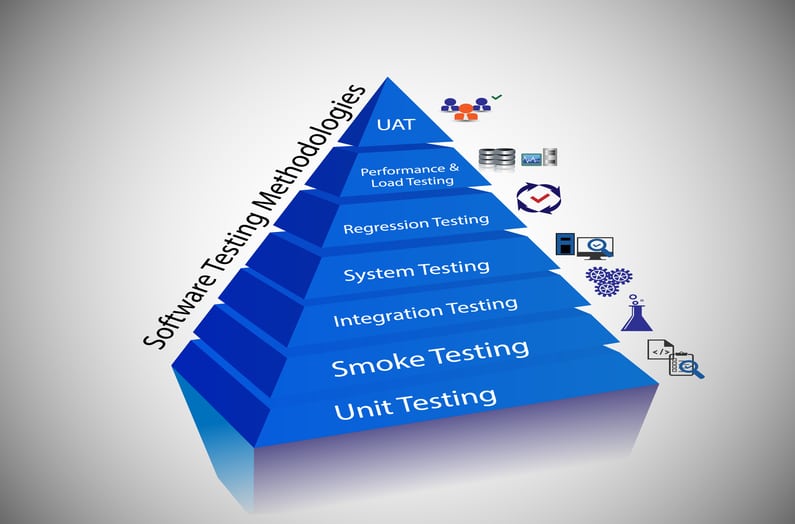Google’s Page Experience announcement should be on every company’s radar. Procrastination will result in loss of traffic when this change rolls out. Those that are prepared may see a nice advantage for a period of time and move their program significant ahead. I see it as an opportunity more so than an inconvenience. Advanced SEO programs will adapt with ease, but companies that do not have a mature SEO program will need to evolve quickly or risk declines in organic traffic.
One of the first expectations I set with my customers is that SEO is not about your SEO team versus your competitor’s SEO team. Mature SEO programs have evolved to the reality that competing in SEO is organization versus organization. Embedded SEO within the organization and the level of that success is the determining factor in a program that can scale versus a program that is only capable of short-term gains followed by recurring incidents of troubleshooting declines. Preparing for the Page Experience update is a chance to launch the initiative to embed SEO into your organization. This leads to one of my other expectations I set with my customers, which is “It is not what you know, it is what you can get done.”.
Embedded SEO is very similar to rolling out Agile in an organization. You begin with each department in the organization and you start with existing processes and where possible you embed the methodology into the current workflow, and then adapt processes to the methodology over time. With the Page Experience update the most critical department is Technology. The development teams, infrastructure teams, and QA teams must look at this update as a new Service Level Agreement (SLA) with the organization. Many companies already have SLAs in place with tech that outline page load time ranges, uptime percentages, and defect rates for releases. The Page Experience update is not about SEO, it is about user experience. SEO, good or bad is a side effect of the experience you provide your customers.
User Experience teams are definitely critical in this process. I outline Technology as the most critical only because they are the gatekeepers as it relates to what code releases to the live websites. Quality Assurance is typically managed out of the Technology team and where many companies fail in SEO is they do not have a QA Engineers qualified to regression test SEO elements. The role of the SEO Program Manager is to embed SEO testing into the Development Life Cycle. The UX team may do everything right (SEO best practices, accessibility best practices, and UI best practices) but a single software release can eliminate valuable effort. Rework then has to be done after the impact has already been discovered on the live website and User Experience along with SEO traffic takes a step backwards.
The key to capitalizing on the Page Experience update is to bring your SEO team, agency, or consultant together with your Technology team and discuss the update and position this as important as security and functional QA. Failure to meet the Core Vitals metric goals must be viewed as a defect or flaw. Technology teams and SEO teams must be auditing each website release to ensure the metrics stay within appropriate ranges. We must address this as critical for the customer. Google is forcing the hands of webmasters to comply with a standard of user experience they believe best serves the customers of their service. These standards are based on extensive research into user behavior.
Organizations must incorporate these new metrics into their operational KPIs. Marketing channel managers and executives must be provided with weekly reports on the Page Experience metrics. Weekly reports are important because of the impact Page Experience can have on ROAS, Sales, Conversion Rate, Bounce Rate, Time Spent on Page, Average Order Value, and overall brand experience. Use Page Experience as a reason to move to a customer led organization. Challenge your SEO agency to take accountability for auditing experience as it relates to the paths from the search engines through the fulfillment of the customer’s intent. Eliminating friction in this path increases value for all channels. If your SEO agency or consultant is not well-versed in both Technology, Marketing, and User Experience, they will not be in a position to help you capitalize on this event.
Work with your teams to embed SEO into the development life cycle. Engineers must evolve to understand that experience metrics are assumed in the project requirements. Quality Assurance must be trained to validate those requirements and prevent experience flaws from releasing onto the live websites. Training will be required, sitejet is here to help. We do not position ourselves as lifetime consultants. Our goal is to assist in developing a best in class SEO program within your organization through training, auditing, and our own Quality Assurance processes. A successful SEO program starts with education in the organization and allowing each department in the organization to receive credit for their contribution. Demand customer led SEO from your agencies, consultants, and your organization.
Sitejet is designed to assist businesses of all sizes and resources. We operate with or without retainer, we perform projects on a fixed bid basis (not to exceed) to eliminate fluctuations in budgeting, and unlike other agencies we require a 30-day commitment only. Our marketing strategy is successful client engagements. No risk engagements place the pressure on the agency to perform and we thrive on that pressure. If your SEO agency or Tech agency is charging a retainer fee without detailed activity or locking you into a long-term engagement, demand more. Sitejet averages nearly 15 years’ experience for all of our lead analysts, UX personnel, and technologists. Strategies delivered to our clients are vetted by experts with over 20 years in the industry with successful track records and impeccable reputations. Expertise is what you pay for when engaging an agency, and extensive expertise is what we deliver.

